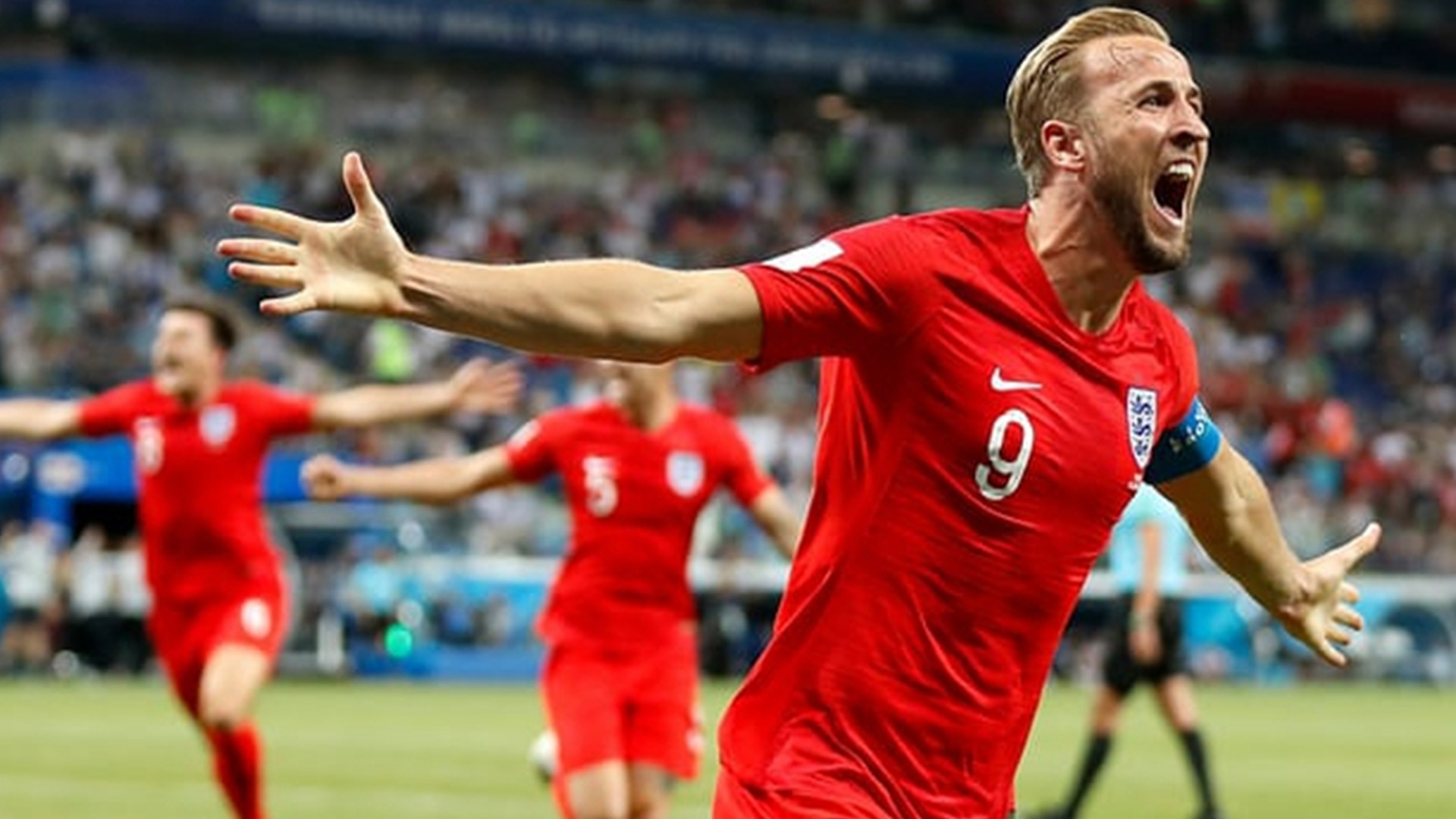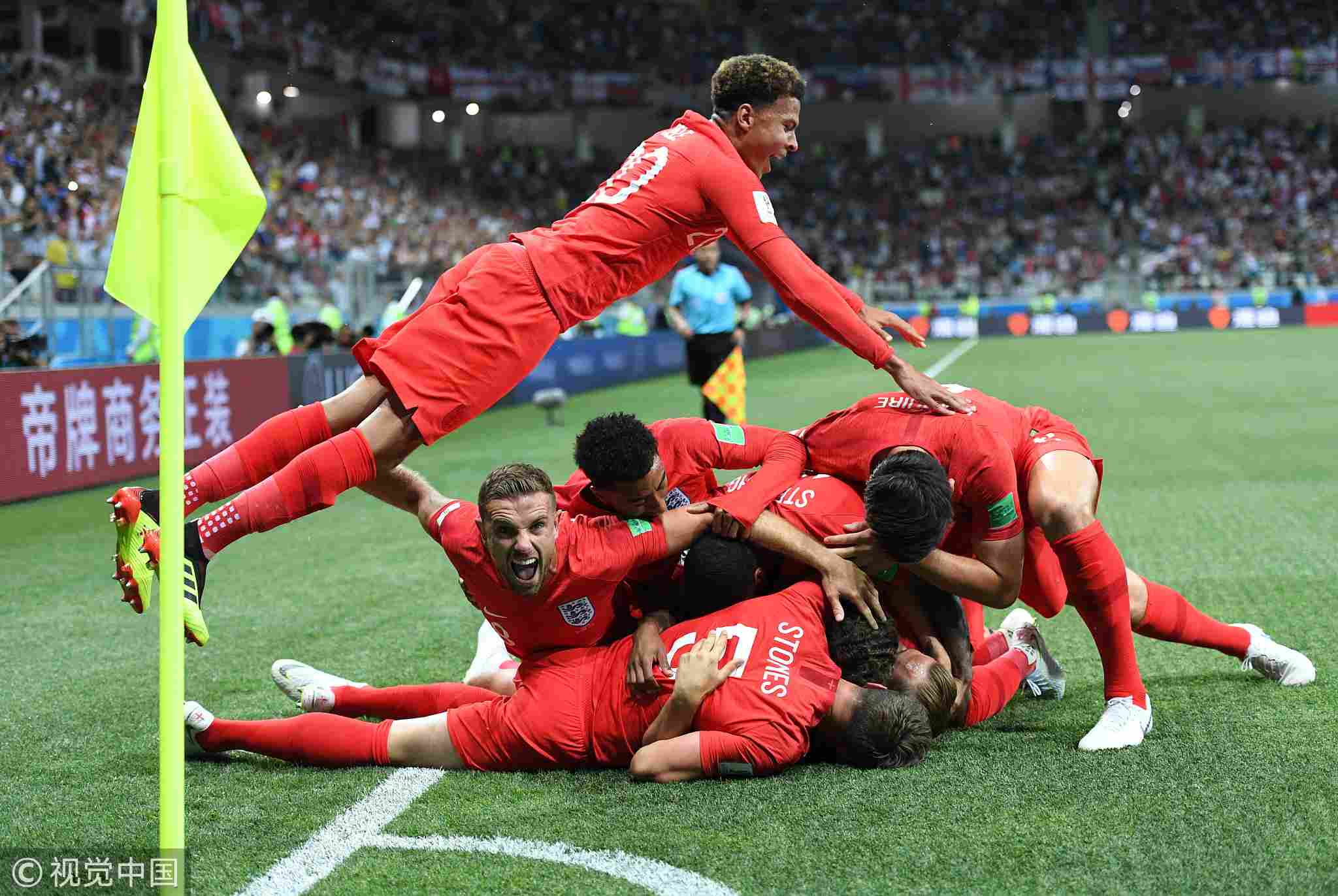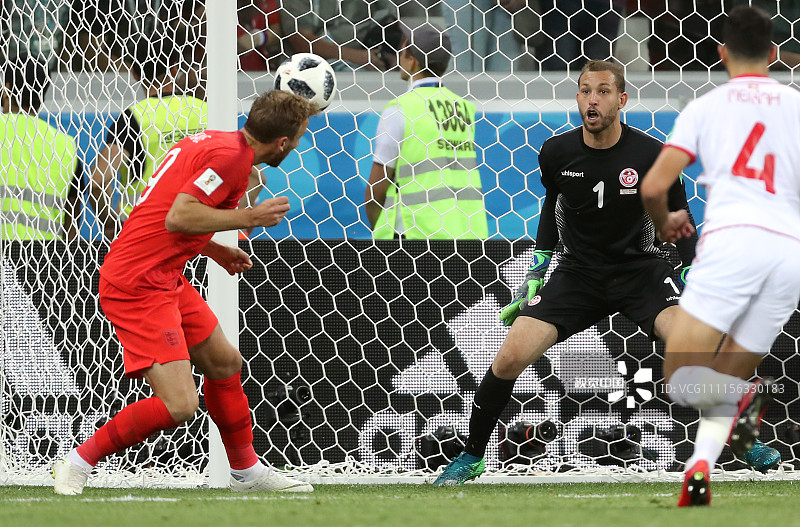
Sports
09:08, 19-Jun-2018
World Cup 2018: Three Lions, two goals, one Harry Kane
Josh McNally
00:47

Remember Euro '96? Those grey shirts. Baddiel and Skinner. The 4-1 thrashing of Holland. The penalty win against Spain – England's first penalty win since time immemorial. Remember Cool Britannia and Oasis at Knebworth? Remember the game against Germany?
You remember Shearer banging it in at the start, but then you probably start to wish you could forget the rest: Stefan Kuntz with the equalizer, bringing an air of vulnerability to an ebullient England. Gazza, one millisecond from glory. And Gareth Southgate's penalty. You remember, but more importantly, so does he – and he's doing everything he can to rewrite his legacy.
When he was appointed England manager after Roy Hodgson slumped out of the position, it felt apt. The man whose very name represents the beginning of the end of England's modern football success was put in charge of a team that had done nothing but stumble and fail for two decades; finally the horse was being put in front of the cart.
And with the last of the Golden Generation - proof that the total doesn't always equal the sum of its parts - bowing out due to a combination of injuries, old age and a realization that it's just not worth it anymore, England's squad under Southgate was devoid of big names.
The conventional wisdom is that when you hit rock bottom the only way you can go is up and that point, long in the coming, arrived in Euro '16 in the form of Iceland, who came out of nowhere and beat England 2-1. It wasn't necessarily that England were beaten by a smaller team that finished off all hopes, it was that it always seemed inevitable that it would happen.
It was a tough time for everyone involved with the England squad, but it provided a clean slate for Southgate and his men, and without any form of expectation and – with one major exception – a complete lack of pressure, we may be looking at the best England squad since Italia '90.

The England team celebrates Harry Kane's first goal. /VCG Photo
The England team celebrates Harry Kane's first goal. /VCG Photo
Throughout the late-90s and early-00s, it seemed like the England team had been left to its own devices. An all-star team of Premier League favorites, they obviously had the talent to go far and that was supposed to be enough, leading to muddled and often clueless performances. Southgate's men, by comparison, actually played like a team – more importantly, they played like a team that wanted to win, felt like they could win and appeared to have something to prove.
From the first whistle, England had the better of Tunisia, constantly pushing the ball up the field and beating the Tunisian players to the punch. Up front, Harry Kane and Raheem Sterling seemed to be able to shoot with impunity. Kane's first goal wasn't a stunner – a tap in from a bungled clearance by Tunisian keeper Mouez Hassen – but it showed just how much pressure England was applying and how hungry they were to make an impact in the tournament.
Hassen was replaced almost as soon as the goal was scored, but it didn't make a difference. England kept the tempo high and were firing at will. And yet, with the score still 1-0 by the end of the first 30 minutes, a creeping dread set in: Maybe, for all the new players and tactics and mindset. Maybe this was still England. And the conversion of a penalty in the 33rd minute due to a clumsy Kyle Walker non-challenge by Ferjani Sassi rubbed it in even more.

Harry Kane's completing his brace with a header in the 91st minute. /VCG Photo
Harry Kane's completing his brace with a header in the 91st minute. /VCG Photo
At half time, it seemed the revelation had hit the players. The energy was gone and capitulation seemed nigh. England's defining trait as a team, the thing they will never be able to shake, is just how belabored they make everything. Earlier in the night, in a similar game of superstar quality vs. complete unknowns, Belgium crushed Panama 3-0 with strong, dynamic play. In contrast, England were going in circles; effortlessly taking possession then losing it quickly with sloppy crosses or sending it out with a shot, theoretically on goal, from Sterling, Kane, Alli or seemingly anyone who got the ball in the Tunisian half.
As part of Group G, England have had plenty of time to see what they're up against and with Germany losing 1-0 to Mexico; Spain, Brazil and Argentina drawing and France's 2-1 victory to Australia being conspicuously arduous, perhaps the Three Lions thought that was the best they could hope for too, and as the clock ran down, so did the game. Raheem Sterling and Dele Alli both ground to a halt around the hour mark, respectively replaced by Marcus Rashford and Reuben Loftus-Cheek twenty minutes later.
Then there it was, out of nowhere. In the 91st minute, England's seventh corner of the game looked like any of their others, only this time when the ball found Kane, he was at the back post and Tunisia were guarding the front. A simple second to get his brace, the header equivalent of a tap-in. Simplicity itself to round out a game that was anything but. When the final whistle blew, the celebrations were tempered by relief, but you could see the glint in the eyes of young players. They see it. They can believe it. It's coming home.

SITEMAP
Copyright © 2018 CGTN. Beijing ICP prepared NO.16065310-3
Copyright © 2018 CGTN. Beijing ICP prepared NO.16065310-3